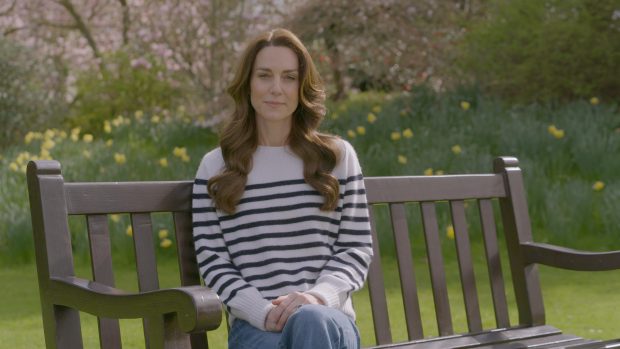
A Scottish oncologist who is herself fighting breast cancer said the Princess of Wales’s early diagnosis gives her the best chance of survival – but more research is needed into rising rates among the young.
Dr Kay Kelly, from Inverness, had to retire early after developing breast cancer at the age of 46.
She spoke as Kate won praise from cancer experts and campaigners for speaking out – and helping other sufferers in the process.
Kate is just 42 – reflecting a trend in which the number of young people under 50 being diagnosed with cancer has risen by nearly 80% in three decades, according to the largest study of its kind.
Scientists at Edinburgh University, alongside academics in China, examined 29 cancers in 204 countries.
Modern day diets eaten over recent decades along with what scientists call other environmental factors, are being examined as reasons for the increase.
The highest rates of early onset cancers were in western Europe, North America and Oceana countries.
Cancer factors
Dr Kelly, 55, said: “An early diagnosis like Princess Catherine’s is always best for good survival and everyone wishes her a good recovery.
“However, we must seek answers to this increase in cancer in younger people.
“We have to look at environmental reasons, whether it be in our food, the quality of air we breathe or other factors.”
The mum-of-two, who was based at Raigmore hospital, added: “We have all eaten ultra-processed foods and if they prove to be a driver or cause for earlier onset of cancer, we should lobby our government to legislate against them.
“I would urge people to see their GP early with any suspicious lumps, bleeding, bloating or change in bowel habits or passing water.”
Dr Kelly is currently on maintenance chemo which has, to date, stabilised her cancer and she undergoes regular scans.
She works as a volunteer at a local primary school helping children with reading and literacy, having previously worked at Raigmore and its outreach clinics across The Highlands to Skye.
One Scottish cancer surgeon consultant who spoke to The Post said: “Changes to our diets which happened around the 1970s and 80s now appear to be a reason for this increase in cancer in younger patients.
“It is predominantly a disease of the elderly, but we are now operating on more younger patients than I did when I was a junior in training.”
Cancer Research UK says more study is needed to probe the causes of early onset cancers.
Its BCAN-RAY study is looking at breast scans in younger women to search for a cause.
Yesterday, one leading doctor said that the discovery of a cancer after an operation – as was the case with Kate – was not uncommon.
Dr Mangesh Thorat, deputy director of the Barts clinical trials unit at the centre for cancer prevention at Queen Mary University, said: “It is not very common, but it’s not uncommon either.
“We often find this because the scans we do pre-operatively often have their limitations.
“When things are looked at under the microscope, after an organ is taken away, you get a much better resolution and then you pick up the cancer.
“So it’s not uncommon.”
Raising awareness
Meanwhile, Gemma Peters, chief executive of the Macmillan cancer charity, praised Kate for helping to raise awareness of the fears that come with a person’s cancer diagnosis – including how it can affect those around them.
“We hear from people every day who are worried about how cancer will affect their loved ones, and how best to support each other through it,” she said.
“In sharing her news, the Princess of Wales has raised awareness of these worries and will be helping to encourage others who have concerns to visit their GP and seek support.”
Peters said “many” people will relate to what Kate and William are going through and the “first thoughts” many parents have are for their children and how they might worry.
“It is important to give them the chance to talk openly about their fears,” she added.
The chief executive of Maggie Cancer Charity, Dame Laura Lee, said a cancer diagnosis could take time to absorb.
Dame Laura said partners were “also impacted by the diagnosis” and the Prince and Princess of Wales’s life together “had been thrown upside down”.
“I think we mustn’t forget the impact on him (Prince William) and he needs to be supported as well,” she said.
“We should have him in our minds as much as Kate.”
The chief executive also said the success of coming through treatment is having the “backing and love of your family around you”. “Just being there in a normal, fun and friendly way,” she added.
“Life still goes on and you still need to have moments of joy and happiness.”
She also said the princess’s words telling others “you are not alone” were “so powerful”.

Enjoy the convenience of having The Sunday Post delivered as a digital ePaper straight to your smartphone, tablet or computer.
Subscribe for only £5.49 a month and enjoy all the benefits of the printed paper as a digital replica.
Subscribe